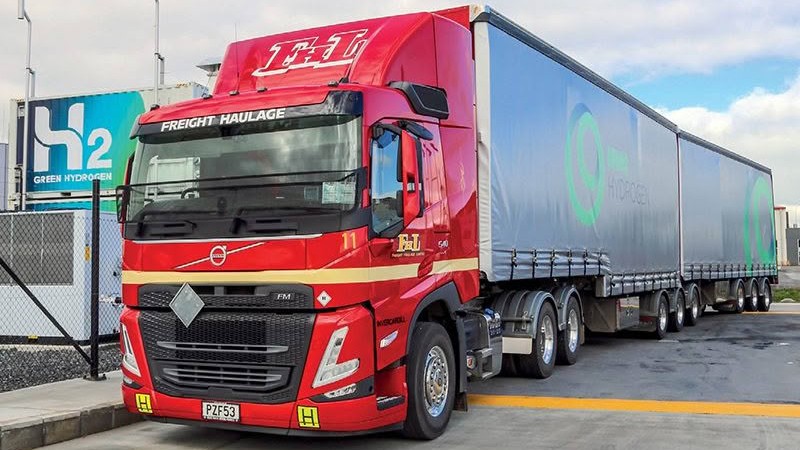What the EECA heavy vehicle grant does for hydrogen affordability

ECA’s $30 million Low Emissions Heavy Vehicle Fund (LEHVF) shapes up as a game- changer in enabling the transport industry to decarbonise.
It’s no secret that hydrogen fuel cell or dual-fuel trucks are currently more expensive than diesel options, although modelling shows that is set to change in the next five to eight years.
But in the here and now, price is a barrier for transport operators considering procuring cleaner vehicles. And that barrier just got smaller.
Impact of the fund
The LEHVF will cover up to 25% of the cost of procuring zero-emission heavy vehicles, including hydrogen trucks – a significant discount.
The fund also covers almost 25% of the cost of converting a diesel truck to a hydrogen dual-fuel engine, up to $35,000.
Just about any diesel truck can be converted to dual-fuel operation. With a few small but significant engine modifications, it allows hydrogen to be injected into the inlet manifold of the truck. Hydrogen combines with the diesel in the combustion chamber and they ignite together to provide power to the drivetrain.
Dual-fuel trucks typically reduce emissions by 20 to 40%, with similar performance to a diesel truck.
The engine conversion cost is less than 20% of the cost of purchasing a new fuel cell truck, which makes it a more affordable option for operators wanting to transition to a lower emissions fleet.
The fund also covers battery-powered trucks, but not the large, expensive chargers required to charge them.
Signal
EECA’s backing of hydrogen and other clean heavy vehicles is also significant for the message it sends.
By putting money towards clean vehicle procurement, EECA – a government entity – is effectively endorsing the technology and its place in the future of transport.
“By offsetting up to a quarter of these vehicles’ purchase price, the government is encouraging businesses to trial these new technologies to reduce day-to-day operating costs,” said ministers Simeon Brown and Simon Watts on announcing the fund.
Cost projections
Modelling shows that while hydrogen trucks are more expensive than diesel equivalents now, it won’t be long before that changes.
With a green hydrogen refuelling network now online (that’s set to expand across New Zealand in coming years), and government subsidies assisting transport companies with the cost of vehicle procurement, the prospects for hydrogen have never been greater.
As uptake drives down the cost of hydrogen vehicles as well as the price of hydrogen at the pump, it’s expected a fuel-cell truck will reach – then surpass – parity with a diesel truck sometime between 2028 and 2030.
The average lifespan of a truck in New Zealand is about 17 years, so if operators purchase a diesel truck today, that diesel vehicle could end up costing them more than if they purchased a hydrogen truck.
Hydrogen transport has always had a clear operational advantage for users, and now New Zealand is on the path that will see the business case stack up as well.






